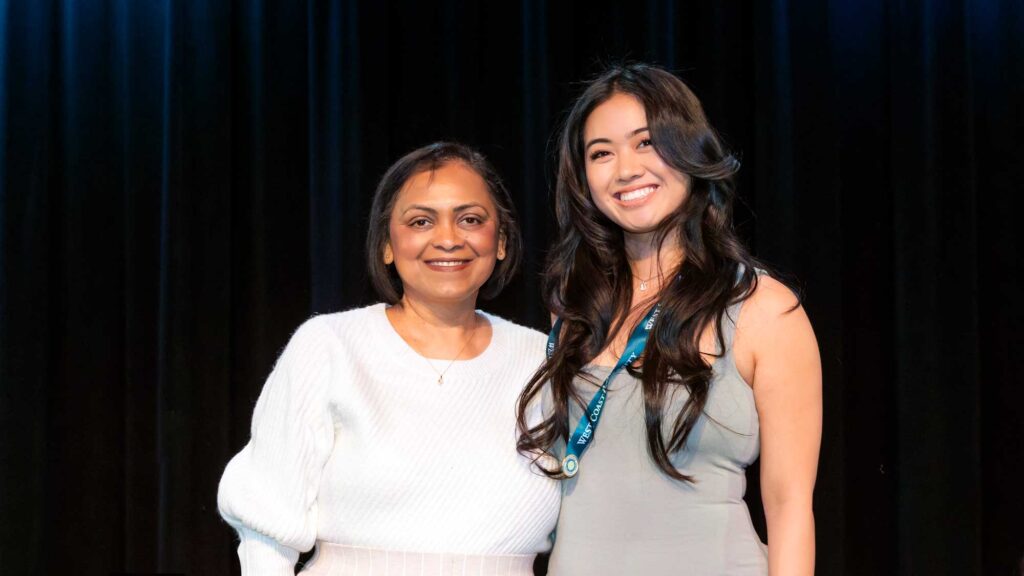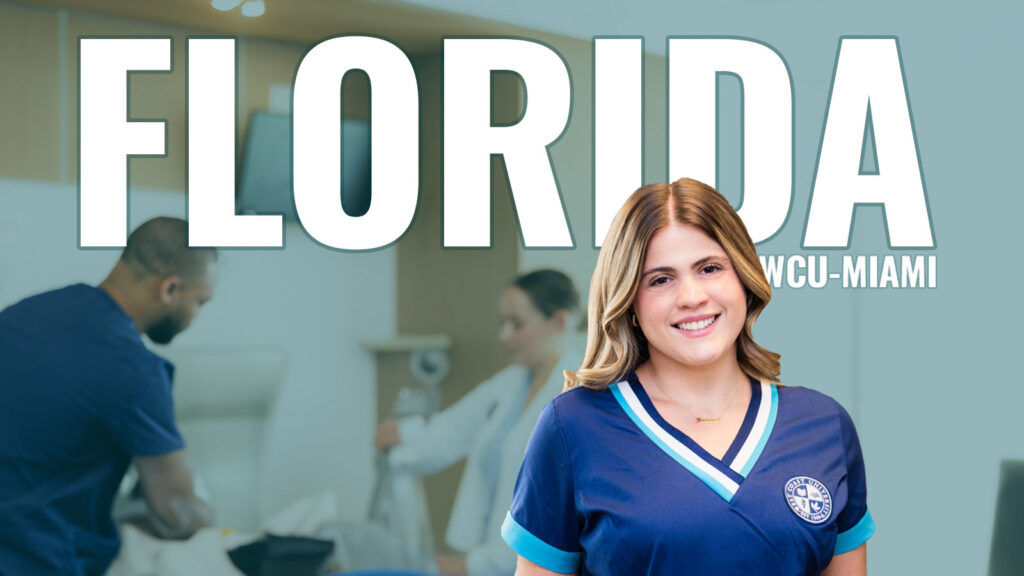After facing his own adversity, Tyler M. found that through nursing he could make a difference.
“I’m deaf out of my left ear and spent a good portion of my childhood at UCLA Medical Center,” he said.
At the ages of 4 and 5, he underwent two surgeries on his ear with one involving prosthetics. Although he called it a complete struggle, he deeply appreciated the care his nursing team offered throughout the experience.
“Growing up I wanted to be that person to offer a helping hand at your lowest moment,” he said.
 With a nursing background in his family, Tyler always appreciated the career but found his passion and purpose through his experience being deaf.
With a nursing background in his family, Tyler always appreciated the career but found his passion and purpose through his experience being deaf.
“I wanted to inspire others to not let any medical condition stop you,” he said. “Being deaf in my left ear has had its obstacles but it’s pushed me to be innovative and find ways to get around certain things.”
Tyler found his way to West Coast University and graduated with a bachelor’s of science in nursing in 2020. He now works as a level 1 trauma center and critical care transport nurse in the emergency department.
“I’m the highest level of medical authority on an ambulance,” he said. “I feel West Coast prepared me for that.”
In his transport nurse role, Tyler is the middleman delivering patients from point A to point B. He must act independently in his decision-making and patient care as there is no doctor present.
“I get anything from invasive IV trips to intubated patients,” he said. “Flight nursing is my goal and what I am working towards. If I can make these autonomous decisions on the ground, I can definitely do it in the sky.”
When hired as a transport nurse, Tyler had only one year of nursing under his belt, though the typical requirement is two to three years. He said it was his education at WCU that made him prepared to take on this demanding role so early in his career.
After graduating in 2020, Tyler was thrown into nursing during a global pandemic.
“I finished right when the pandemic started so I didn’t know what was going to happen,” he shared. “Who would have thought as a new grad I would get to work in the height of a pandemic? We were basically taught that you have to be prepared for anything and that was ‘the anything’ we prepared for.”
Tyler referenced the thorough and extensive training WCU offers its students and how that impacted his critical patient care.
“Thank goodness West Coast prepared me with their simulations, rigorous exams and just pushed us to the edge every single term,” he said. “It definitely prepared me for the rigorous environment I had to face during the pandemic.”
While working in the emergency room the past year, Tyler said he saw the grave impact on specific populations and worked to accommodate his patients.
“During the pandemic I felt like it impacted the Hispanic population really badly and a lot of them couldn’t speak English. We only had so many translator iPads,” he said. “I decided to step out of my comfort zone to learn Spanish so now I am somewhat proficient.”
After attending WCU, Tyler said he discovered a love for learning. He continues to educate himself both on and off the job.
He shared that his girlfriend, also a registered nurse, laughs at him because on his days off he will sit in the kitchen for hours on end reading about pediatrics and critical care.
He makes it his priority to do what he can to lend a hand to his patients.
“Whenever someone is in the emergency room this is their worst day,” he said. “You don’t show up to the ER for a random visit.”
Tyler recalled one of his favorite memories from working in the ER this past year. An older man and his wife, both testing positive for coronavirus, were separated at the height of the pandemic. Tyler recalled that the man, who was his patient, had not asked for anything while waiting for a room to open.
While collecting the man’s belongings, Tyler asked if there was anything he could do for him.
The man explained that his wife was also admitted for COVID-19 but they didn’t have their phones and had no idea how the other was doing.
“Everyone was scared and wondering what was going to happen. Is so and so alive?” Tyler remembered.
While Tyler told the man he would get him a phone call, instead, he went and looked up her room number. On the way to his patient’s new room, Tyler took him on a detour to see his wife.
“We passed by his wife’s room and I told him to look to the right and he tapped on the window and it was her,” Tyler said. “I was able to let him see his wife in person. I’ve never been called a hero during the pandemic and that’s what he told me I was.”
Tyler recognized that as one of the most emotional moments he experienced as a nurse. Although he said he loves the adrenaline and intensity of working in the emergency room it was that moment that touched him deepest.
“It wasn’t me saving someone’s life. It wasn’t the craziness or adrenaline. It was just reflecting and trying to put yourself in someone else’s shoes and what they’re going through,” he said. “Just giving them your hand during the roughest time of their lives and being able to give back. It’s not all the medications in the world — it’s the empathy you have.”
WCU provides career guidance and assistance but cannot guarantee employment. The views and opinions expressed are those of the individuals and do not necessarily reflect the beliefs or position of the school or of any instructor or student.


